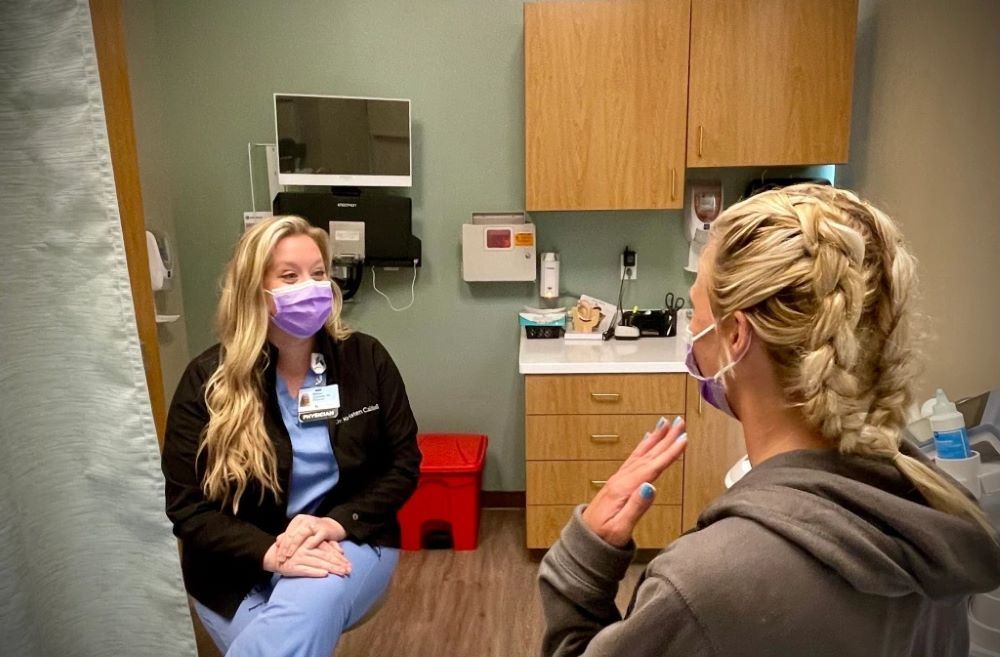Women’s Health
Want to learn more about this at Kettering Health?
Mental health has become an ever-present topic among healthcare providers and their patients—and for good reason. Recent years of turmoil and tragedy have shaken and shaped the average person’s everyday life.
This upheaval of everyday life has led to increased rates of anxiety, depression, and other related issues, particularly among young people and women. And finding mental-health care has also become difficult.
What many women may not know is that they can have mental-health conversations with their OB-GYN.
“Even if you’re unsure what you’re dealing with, an OB-GYN office is a great place to initiate that first conversation,” says Dr. Kristen Caldwell, an OB-GYN with Kettering Health.
OB-GYNs offer more than exams
“Sometimes women hesitate to bring up that part of their health because they think they just come to us for a mammogram or a pap smear, the more physical portions of the examination,” says Dr. Caldwell. “But women’s health really does encompass every aspect of health.”
When people think of OB-GYNs and mental health, they typically think of postpartum depression related to childbirth. However, women’s health and mental health are linked in many ways:
- Women dealing with infertility may struggle with anxiety and/or depression.
- Women going through menopause may see a significant effect on cognition, such as changes in mood, energy levels, and sleep patterns.
- Those dealing with chronic pelvic pain often have underlying mental health issues that can make the pain worse.
Even if patients feel their mental health isn’t affected by their physical health, talking with an OB-GYN is never a bad idea.
Risk factors and signs
Of all things that affect mental health, women tend to face the most challenges.
“Women are at higher risk for mental health disorders such as anxiety and depression compared to men,” says Dr. Caldwell.
Some signs that may indicate mental illness include
- Crying more than usual
- Isolation
- Excessive tiredness or insomnia
- Weight gain or loss, or loss of appetite
- Rapid and dramatic mood swings
“It doesn’t have to be the extremes, either,” explains Dr. Caldwell. “Small changes can be that first instinct that you may need to bring up how you’re feeling to your provider.”
It can be nerve-wracking to talk about your mental health and ask for help, but Dr. Caldwell wants women to know that their OB-GYN is always there for them. “It’s hard to take down that barrier of anxiety sometimes,” says Dr. Caldwell, “but we want to make sure women know the OB-GYN is there to do more than just their pap smear.”












